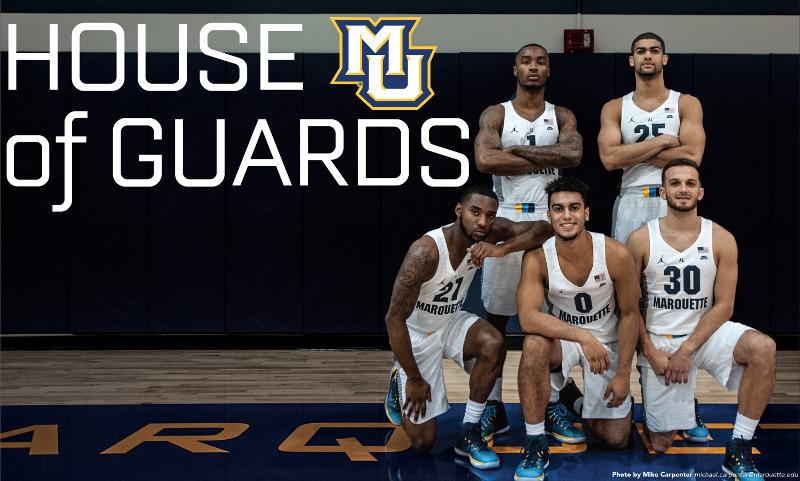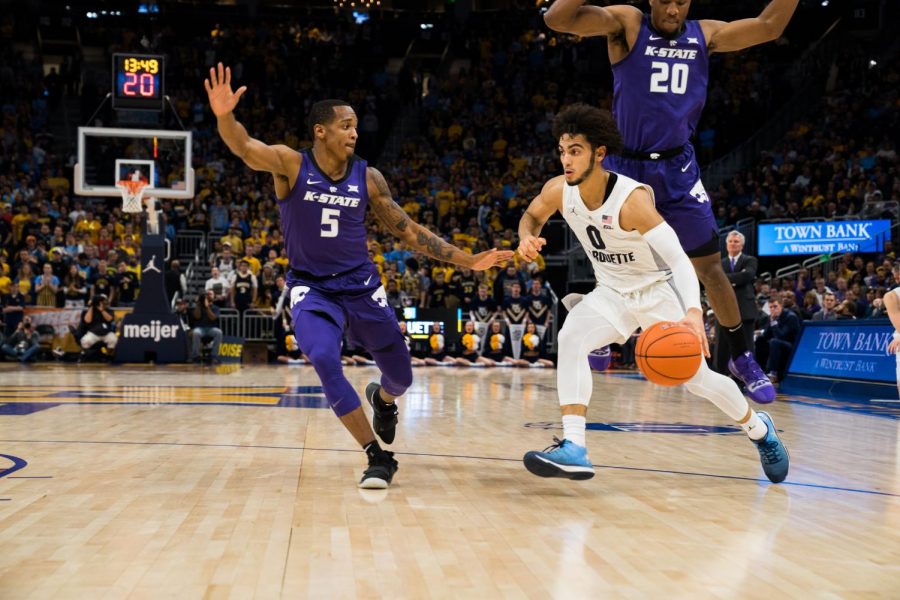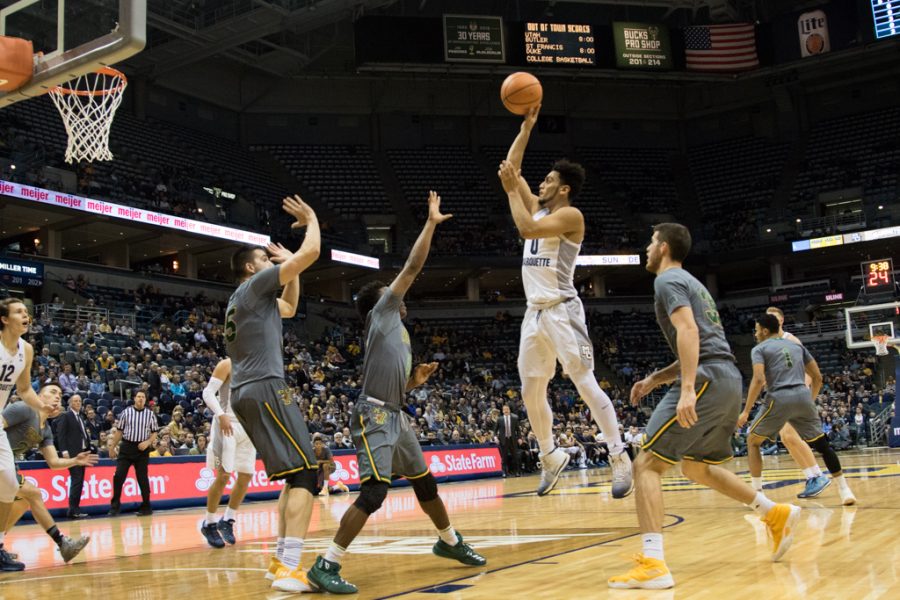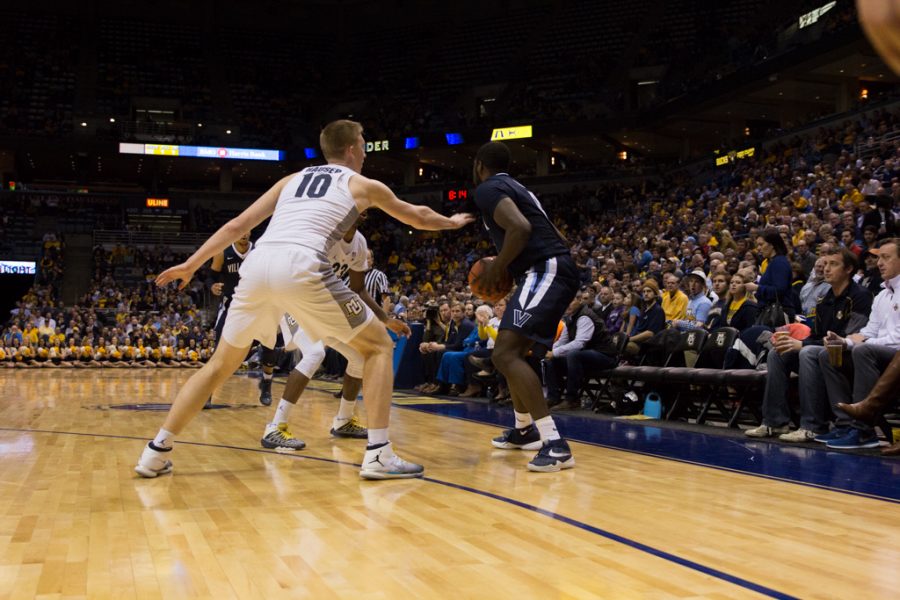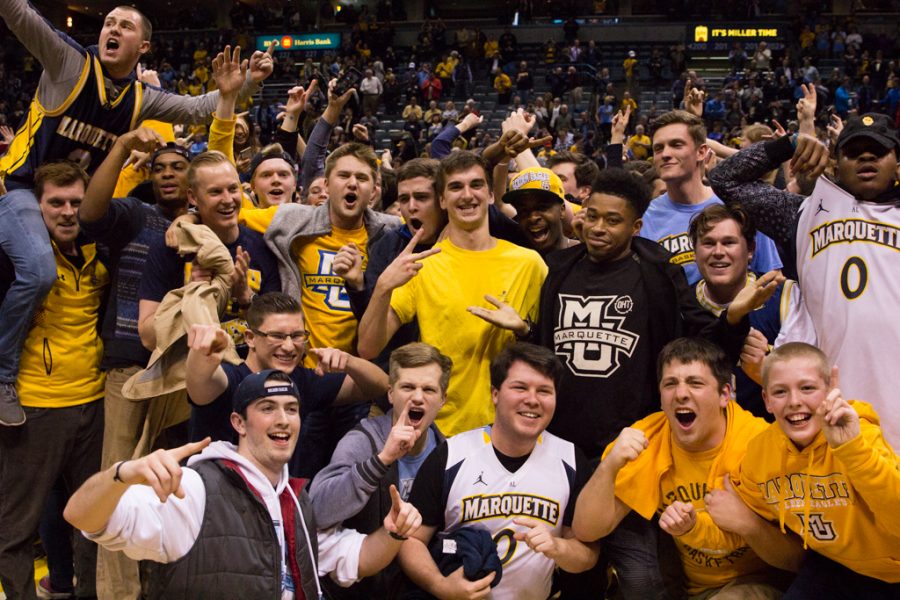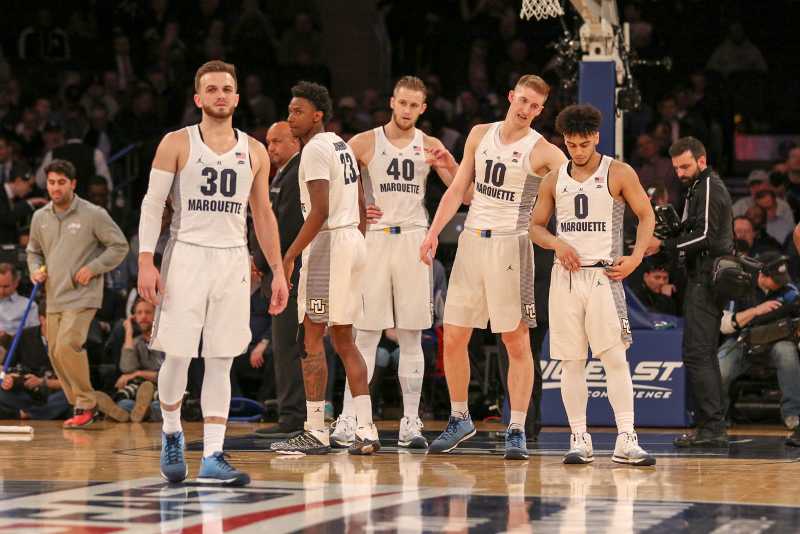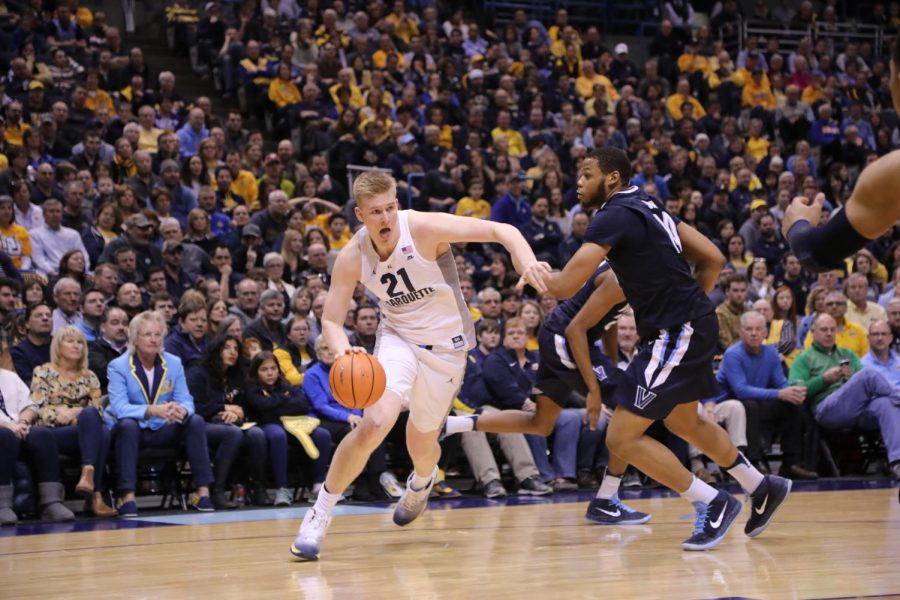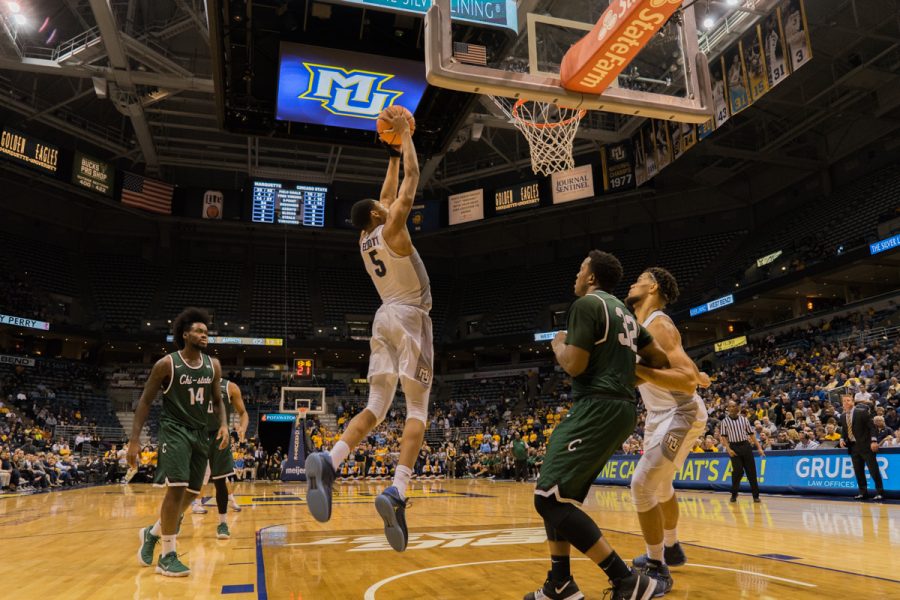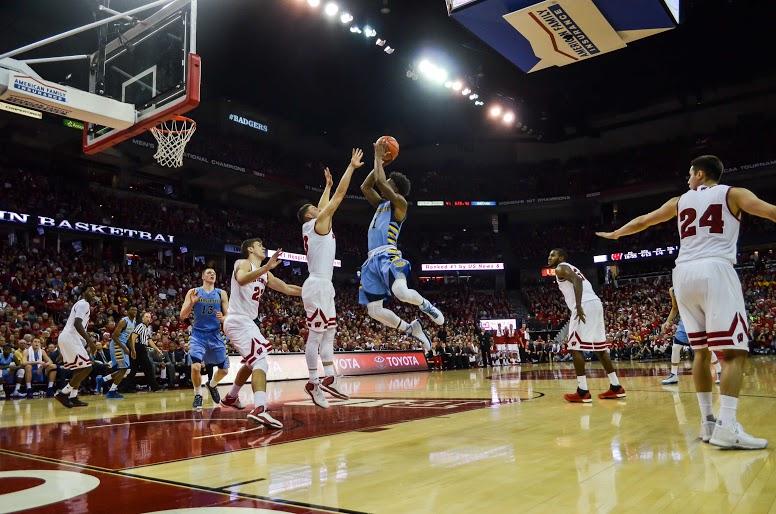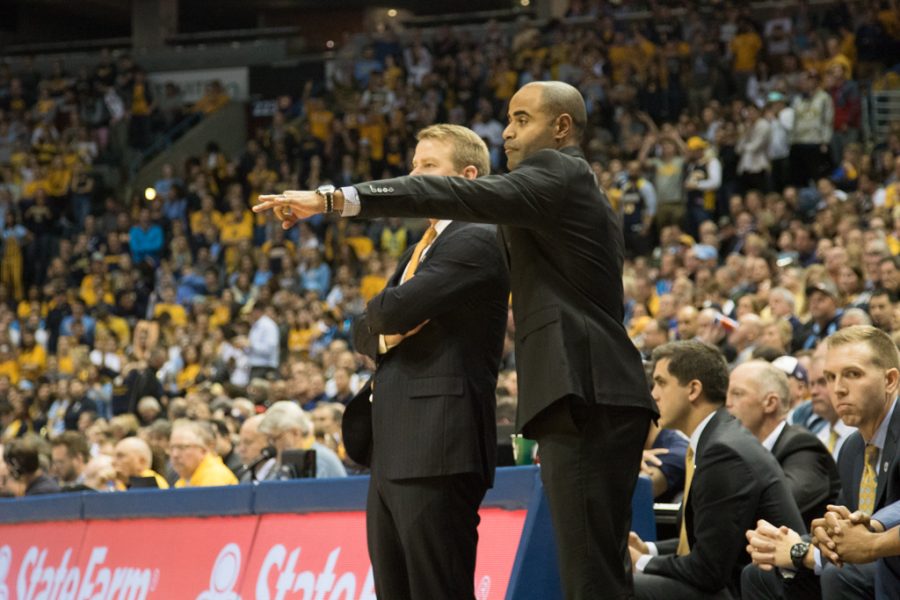It doesn’t take long looking at the men’s basketball roster to notice a position disparity. Of Marquette’s 12 scholarship players, seven are listed at guard. Based on the roster makeup, it wouldn’t be surprising to hear that head coach Steve Wojciechowski plans to use three guard sets. But what about four guard, or even five guard sets on the floor at a time if you consider Sam Hauser? It’s not as ridiculous as it sounds.
“The era of the ‘undersized’ team is here and has been here,” Wojciechowski said. “This isn’t some, like, unusual experiment. Like, ‘Oh my gosh I can’t believe they’re doing that.’ … If you’re undersized, it doesn’t mean you’re undermanned.”
Small ball is becoming more popular due to its success. You don’t have to be the Golden State Warriors with Steph Curry, Klay Thompson and Draymond Green for it to work. There are even two teams in the conference Wojciechowski looks to as a model. Villanova won a national championship last year playing with a guard-heavy lineup anchored by center Daniel Ochefu. Xavier finished right behind them in the conference playing that way as well.
When it comes to just point guard and shooting guard, Marquette can go five deep this season. Of that group, only two are locked into a set position — Traci Carter at the one and Haanif Cheatham at the two. Andrew Rowsey, Duane Wilson and Markus Howard can all play either point or shooting guard, and Wilson said he may spend time at small forward like he did his redshirt freshman year. That’s all before mentioning players like Jajuan Johnson and Katin Reinhart, who will likely stick to big man roles despite fitting a more traditional guard build.
“I feel like we’re going to have one of the best back courts in the country,” Howard said. “We have a lot of weapons and a lot of shooting ability from the one through four positions.”
But truly, the numbers may be irrelevant, as Wojciechowski is preaching the idea of “positionless basketball.”
“I don’t want guys to get caught up in what position they’re quote-unquote playing,” Wojciechowski said. “I want them to be basketball players.”
“He told us to not really think of it as a position, but as a spot on the floor where you need to be,” Rowsey said.
The key to the small ball lineup working for Marquette may come down to the team living up to its three-point shooting potential. Rowsey shot 38 percent from three his sophomore year at UNC Asheville and 40 percent as a freshman. Markus Howard was outstanding at the FIBA U17 tournament, shooting around 50 percent. Cheatham shot nearly 39 percent last season, while Wilson shot 35 percent. Even Carter, the least lethal deep threat, showed at times last season you have to respect his shot.
“It helps me out too, getting to the basket and with spacing,” Cheatham said.
Marquette has enough talented players to mix and match combinations, making it very difficult to defend. Carter said he’s already seen how fun it can be to work as the main facilitator with so many weapons surrounding him.
“Especially in practice, the ball is hopping,” Carter said. “It’s just knocking it down. You have to be impressed.”
Strong three-point shooting would keep defenders honest and free up space for centers Luke Fischer and Matt Heldt, who will have an extra heavy load with no traditional power forward to work with.
The depth also allows Marquette to do something they certainly weren’t able to do when they were down to eight players two years ago — give guys rest. Wojciechowski said he doesn’t expect players on the court upwards of 32 minutes. Players now can work harder for short spurts, which should help the team implement a full-court press.
“We can put fresh legs in at any time,” Wilson said. “I think that’s one thing coach Wojo wanted to do since he came to Marquette.”
The least tangible effect of that depth is the added competition the team now has. All of these players are competing for limited minutes. There may be a game where you see a player on the court frequently, and then the next, they are a role player.
“It’s one thing to say something to a young man about what he needs to do better and what he needs to change,” Wojciechowski said. “It’s another thing if they’re not listening to say, ‘Well, if you don’t want to do it you can come sit over here.'”
It’s a luxury Wojciechowski could get used to.

